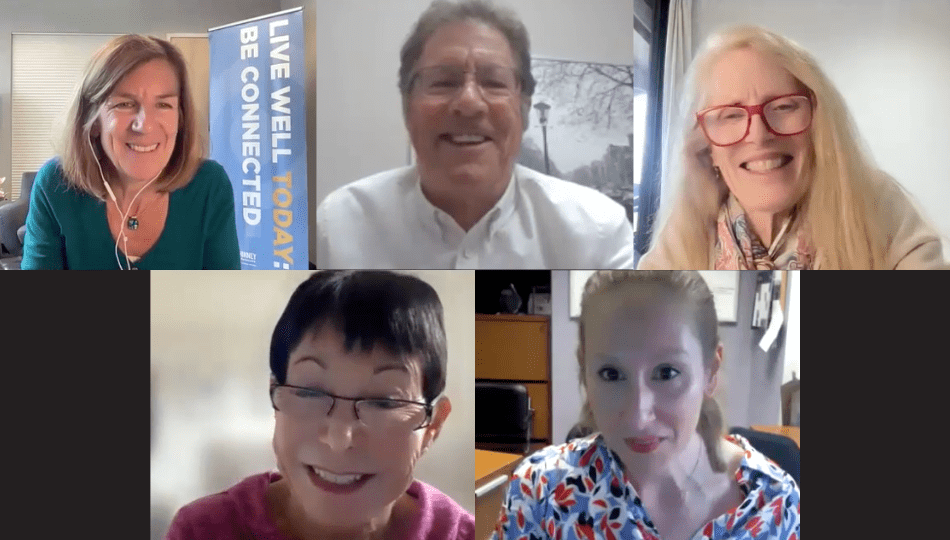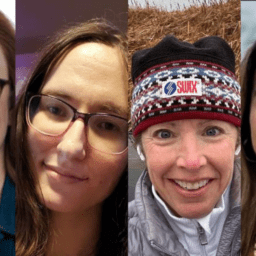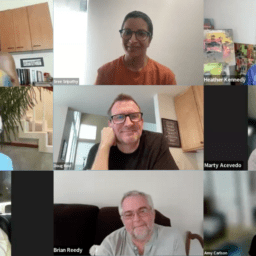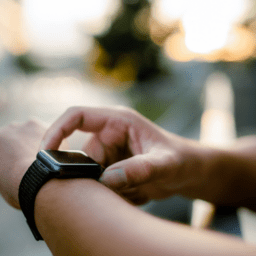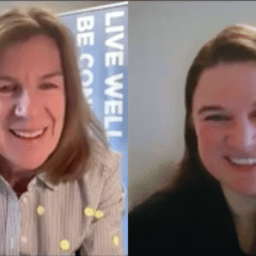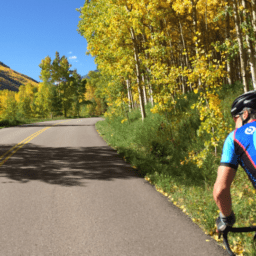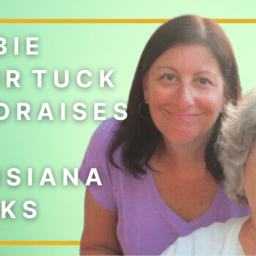Written by Connie Carpenter Phinney
Our May meetup featured a special guest: Dr. Jori Fleisher, a movement disorders neurologist affiliated with Rush University. As usual, the meetup also featured moderator Polly Dawkins and two Foundation Ambassadors: Gail Gitin and Pat Donahoo.
Dr. Fleisher is a researcher and clinician who has loved ones with Parkinson’s, so she has experienced the full gamut of caring for people with Parkinson’s. Her medical training included a four-year residency in neurology and a two-year fellowship to become a movement disorder specialist.
You can watch a video recording of the meetup below. Also, consider subscribing to our YouTube channel to be notified every time we upload a new recording.
An audio version of this webinar is available here.
MEETUP NOTES
BUILDING THE RIGHT CARE TEAM
During the meetup, we talked about the importance of finding the right medical team for your person with Parkinson’s and how this might involve a change or the addition of a new doctor. Building the strongest care team possible is essential to help reduce care partner strain. If the person you are looking after is suffering, so are you.
Dr. Fleisher noted that in her clinic, she can always find something to help a person with Parkinson’s. She tells the fellows she works with that the only unacceptable answer to a patient’s problem is to tell them there is nothing that can be done. This is essential for you, the care partner, to know: It’s not acceptable if you are given that answer from a clinician. There are always things that can be done.
FINDING MENTAL HEALTH SUPPORT
An audience member asked how to find a psychologist or other therapist. Dr. Fleisher advised asking your general practice doctor or neurologist for suggestions. In some cases, there are social workers on staff within neurology centers and movement disorder clinics. If, after several visits these social workers can’t provide the help you need, they may refer you to another provider.
If offices in your area don’t have social workers available, try reaching out to members of a local support group for recommendations. Psychology Today lists therapists and other mental health support personnel in your area. Their site has a powerful search engine that may help you find a therapist who specializes in caregiver strain.
Dr. FLEISHER’S RESEARCH
Dr. Fleisher talked about her research, which focuses on education of care partners through mentoring, since the health care system is not set up to help us help our person with Parkinson’s. Her work involves bringing in all the various specialists to train mentors who can work with people like us: the care partners on the ground.
The experts in Dr. Fleisher’s movement disorders practice include a dietician, a neuropalliative care specialist, and a chaplain—each with their own areas of expertise. Some audience members wondered how these specialists could provide support for them. Care partners need the information and guidance these experts provide. It eases our load. Without it, both we and our people with Parkinson’s suffer. Dr. Fleisher advises us to seek out mentors and/or other expert support so we can do our jobs better.
For more information about Dr. Fleisher’s ongoing research study involving care partners, email persevere@rush.edu. You can also visit the study website to watch a video about the research and take a prescreening survey to see if you are eligible to participate in the research.
You can also learn more about Dr. Fleisher’s previous research through our care partner training, or our 2023 webinar about Dr. Fleisher’s research.
COGNITIVE IMPAIRMENT
A member of the audience asked about cognitive impairment. Dr. Fleisher told us that a person with Parkinson’s will have an 80% chance of developing some degree of cognitive impairment after 20 years, with attention and concentration being the most likely areas of decline.
To help with this when it happens, Dr. Fleisher encourages us to change the environment in which we live. She advises minimizing distractions, including noise from the TV. This helps facilitate more clarity. She also asks her patients to make eye contact, which helps ensure focused communication between the person with Parkinson’s and their care partner. This might require action from you, but it will help you in the long run.
I invite you to read my recent post at Psychology Today to see my perspective on the emotions surrounding safety as relates to my person with Parkinson’s and cognitive dysfunction.
DECISION-MAKING
Another listener asked how we honor our person with Parkinson’s when their decision-making might be impaired. Dr. Fleisher said that the answer depends on the situation and will be based on your knowledge of the individual and how dangerous the activities are.
Driving is a great example. Dangerous decision-making while driving puts others at risk. Dr. Fleisher suggests bringing in an occupational therapist to help with assessment, but she also said that if it feels unsafe to drive with your person, you need to set parameters. You might need to restrict their driving to daytime only or possibly even prevent your person from driving altogether.
NEUROPALLIATIVE CARE
A listener asked about what neuropalliative care is and when we should seek it out. Dr. Fleisher said that this field encompasses the many aspects of helping ourselves and our person with Parkinson’s enhance their quality of life.
Palliative care is often linked to hospice, but is not synonymous with end-of-life care. Palliative care can benefit anyone living with a chronic health condition, regardless of age or stage. Gail had experience with neuropalliative care for her husband, and she expressed that this approach gave her help with decision-making, which was a relief.
Some doctors support the notion that we should seek this type of care right from diagnosis, but it’s typically not offered in the healthcare system until during later stages, unless you press for it.
CLOSING THOUGHTS FROM THE PANEL
In closing, Pat reiterated that finding the right movement disorder specialist is key. If you aren’t getting the answers or support, start shopping around. This has been essential to him and his person.
Gail reminded us to keep in mind all the times you “get it right.” She also advised care partners not to linger on perceived “mistakes.” We are all doing the best we can. Remember that.
Thanks for reading. As always, our next meetup will be on the first Tuesday of next month. If you haven’t done so already, please sign up to join us for our live sessions.
ADDITIONAL RESOURCES REFERENCED DURING THE MEETUP
Neuropalliative Care Webinar featuring Dr. Kluger
Dr. Kluger’s Website on Neuropalliative Care
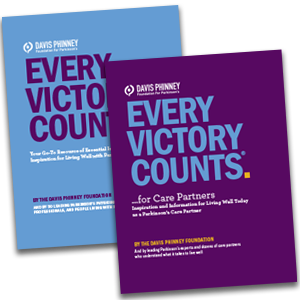 WANT MORE PRACTICAL ARTICLES LIKE THIS?
WANT MORE PRACTICAL ARTICLES LIKE THIS?
You can learn much more about living well with Parkinson’s today through our Every Victory Counts® suite of resources. Each manual is packed with up-to-date information about everything Parkinson’s. Click the link below to order your manual(s).
Thank you to our 2024 Gold Partner, AbbVie, and our Silver Partner, Mitsubishi Tanabe Pharma America, for their ongoing support of these must-have manuals. Additionally, we’d like to thank Barbara and Dale Ankenman, Abby and Ken Dawkins, Bonnie Gibbons, Irwin Narter, Lorraine and J Wilson, and Gail Gitin in loving memory of Gene Gitin for their generous donations that allow us to make these resources available and accessible to all.


